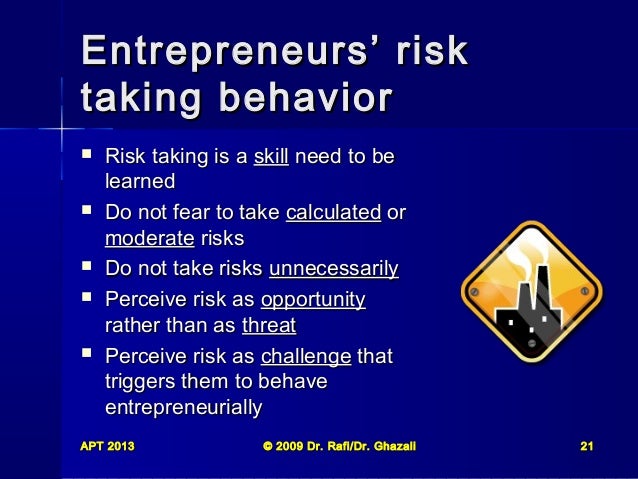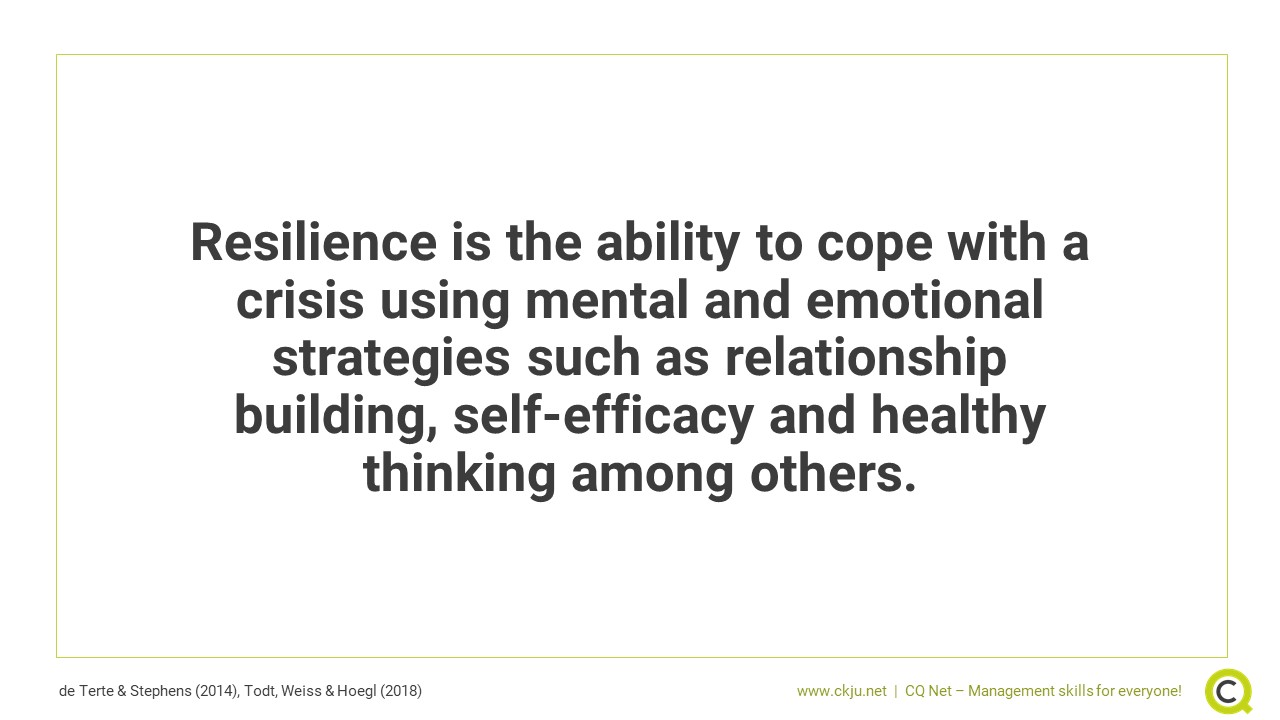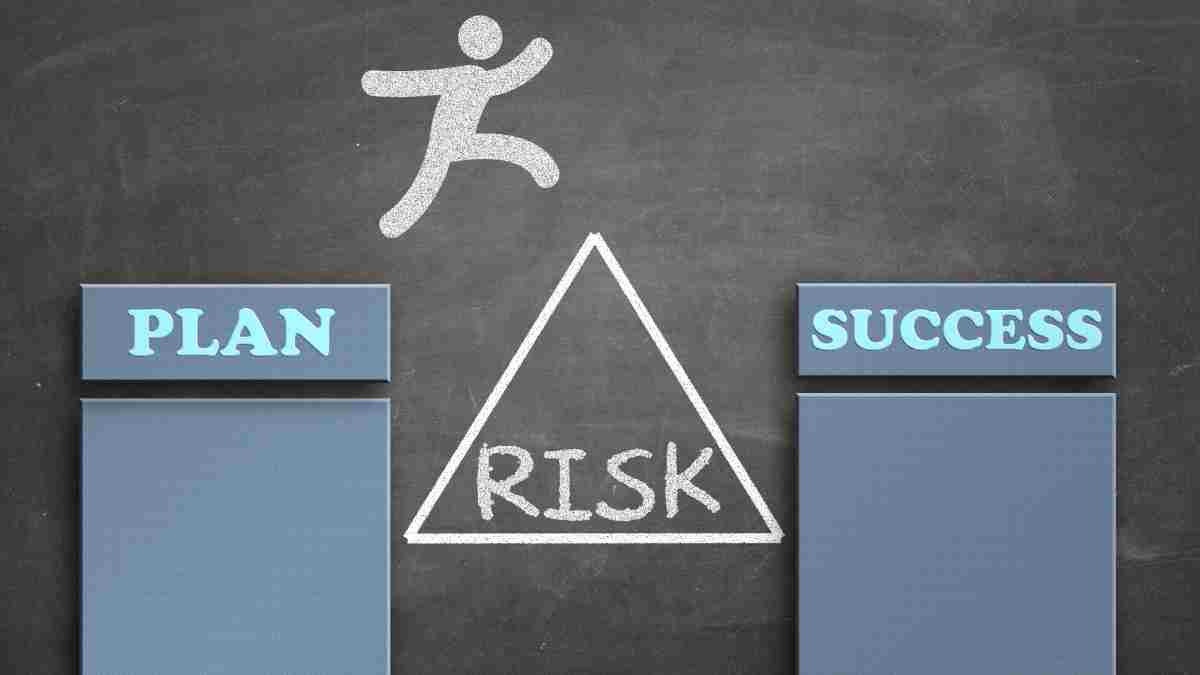Embracing Uncertainty as a Catalyst for Growth
Entrepreneurs with a high risk tolerance view uncertainty as an opportunity for growth and innovation, rather than a threat to their business. This mindset allows them to stay ahead of the competition and adapt to changing market conditions. By embracing uncertainty, entrepreneurs can foster a culture of experimentation and learning, leading to the development of new products, services, and business models. This, in turn, enables them to capitalize on emerging trends and stay ahead of the curve.
Uncertainty can also drive innovation by forcing entrepreneurs to think creatively and develop novel solutions to complex problems. By embracing uncertainty, entrepreneurs can encourage a culture of calculated risk-taking, where experimentation and learning are valued over caution and conservatism. This approach can lead to the development of new technologies, products, and services that disrupt existing markets and create new opportunities for growth.
Moreover, entrepreneurs with a high risk tolerance are better equipped to handle the uncertainty and ambiguity that comes with starting and growing a business. They are more likely to take bold action, even in the face of uncertainty, and are more resilient in the face of setbacks and failures. This enables them to navigate the challenges of entrepreneurship with greater ease and confidence, and to make more informed decisions that drive business growth.
By embracing uncertainty, entrepreneurs can also develop a more agile and adaptable business model, one that is better equipped to respond to changing market conditions and customer needs. This enables them to stay ahead of the competition and to capitalize on emerging trends and opportunities. In today’s fast-paced and rapidly changing business environment, this ability to adapt and innovate is critical for success.
Ultimately, embracing uncertainty is a key component of the entrepreneurial mindset and risk tolerance. By viewing uncertainty as an opportunity for growth and innovation, entrepreneurs can develop a more agile and adaptable business model, drive innovation, and stay ahead of the competition. This mindset is critical for success in today’s fast-paced and rapidly changing business environment.
How to Develop a Risk-Tolerant Mindset as an Entrepreneur
Developing a risk-tolerant mindset is crucial for entrepreneurs who want to succeed in today’s fast-paced and rapidly changing business environment. By embracing risk and uncertainty, entrepreneurs can drive innovation, stay ahead of the competition, and achieve their goals. Here are some actionable tips and strategies for developing a risk-tolerant mindset:
Embracing failure as a learning experience is a key component of a risk-tolerant mindset. Entrepreneurs who view failure as an opportunity for growth and learning are more likely to take bold action and experiment with new ideas. By reframing failure as a stepping stone to success, entrepreneurs can develop a more resilient and adaptable mindset.
Setting bold goals is another way to develop a risk-tolerant mindset. By setting ambitious goals, entrepreneurs can challenge themselves to think outside the box and push beyond their comfort zones. This helps to build confidence and develop a sense of self-efficacy, which is critical for taking risks and overcoming obstacles.
Surrounding yourself with supportive peers and mentors is also essential for developing a risk-tolerant mindset. By connecting with like-minded entrepreneurs who share your values and goals, you can gain valuable insights and advice, and develop a sense of community and belonging. This can help to boost your confidence and motivation, and provide a safety net for taking risks.
Additionally, entrepreneurs can develop a risk-tolerant mindset by practicing mindfulness and self-reflection. By taking the time to reflect on your thoughts, feelings, and behaviors, you can gain a deeper understanding of your risk tolerance and develop strategies for managing uncertainty and ambiguity. This can help to build resilience and develop a more adaptive mindset.
Finally, entrepreneurs can develop a risk-tolerant mindset by embracing a growth mindset. By viewing challenges and obstacles as opportunities for growth and learning, entrepreneurs can develop a more optimistic and resilient mindset. This helps to build confidence and motivation, and provides a foundation for taking bold action and achieving success.
By incorporating these strategies into your daily life, you can develop a risk-tolerant mindset that will serve you well as an entrepreneur. Remember, developing a risk-tolerant mindset takes time and practice, but the rewards are well worth the effort.
The Psychology of Risk Tolerance: Understanding Your Personality Type
Research has shown that personality type plays a significant role in shaping an individual’s risk tolerance. Understanding your personality type can help you develop a more effective risk management strategy, which is critical for entrepreneurs who need to navigate uncertain and rapidly changing business environments.
For example, introverted personality types tend to be more cautious and risk-averse, preferring to analyze and evaluate information before making a decision. In contrast, extroverted personality types tend to be more impulsive and risk-tolerant, often relying on intuition and instinct to guide their decision-making.
However, it’s essential to note that personality type is not the sole determinant of risk tolerance. Other factors, such as life experiences, cultural background, and cognitive biases, can also influence an individual’s risk tolerance.
Understanding your personality type can help you identify potential blind spots and biases that may impact your risk tolerance. For instance, if you’re an introverted personality type, you may need to make a conscious effort to balance your analytical nature with a more intuitive and adaptable approach to risk-taking.
Similarly, if you’re an extroverted personality type, you may need to be more mindful of your impulsive tendencies and take the time to evaluate the potential risks and consequences of your actions.
By understanding your personality type and its impact on your risk tolerance, you can develop a more effective risk management strategy that leverages your strengths and mitigates your weaknesses. This can help you make more informed decisions, navigate uncertain business environments, and achieve your goals as an entrepreneur.
Furthermore, understanding the personality types of your team members and partners can also help you build a more effective and resilient team. By recognizing the different risk tolerance profiles within your team, you can assign tasks and responsibilities that play to each individual’s strengths and weaknesses.
Ultimately, developing a deeper understanding of the psychology of risk tolerance can help entrepreneurs make more informed decisions, build more effective teams, and achieve greater success in their business endeavors.
Real-Life Examples of Risk-Tolerant Entrepreneurs
Entrepreneurs with a high risk tolerance often achieve remarkable success by embracing uncertainty and pushing beyond their comfort zones. Two exemplary entrepreneurs who embody this fearless business approach are Richard Branson and Sara Blakely.
Richard Branson, the founder of Virgin Group, is renowned for his willingness to take bold risks. He has launched numerous ventures, including Virgin Airlines, Virgin Mobile, and Virgin Galactic, often in highly competitive markets. Branson’s risk tolerance has enabled him to stay ahead of the curve and capitalize on emerging trends. For instance, he invested in Virgin Galactic, a space tourism venture, despite the significant technical and financial risks involved. This move has positioned Virgin Galactic as a pioneer in the private space industry.
Sara Blakely, the founder of Spanx, is another entrepreneur who has demonstrated exceptional risk tolerance. Blakely bootstrapped her company, investing her life savings in a product that many experts deemed unlikely to succeed. However, she persevered, and her innovative approach to shapewear revolutionized the industry. Blakely’s willingness to take risks has enabled her to expand her product line and build a global brand.
Both Branson and Blakely exemplify the entrepreneurial mindset and risk tolerance required to achieve success in today’s fast-paced business environment. By embracing uncertainty and pushing beyond their comfort zones, they have created innovative products and services that have disrupted entire industries.
These entrepreneurs’ decision-making processes are characterized by a willingness to challenge conventional wisdom and explore unconventional opportunities. They surround themselves with supportive peers and mentors who share their risk-tolerant mindset, which helps them stay focused and motivated in the face of adversity.
By studying the approaches of risk-tolerant entrepreneurs like Branson and Blakely, business leaders can gain valuable insights into the importance of embracing uncertainty and pushing beyond their comfort zones. By adopting a similar mindset, entrepreneurs can position themselves for success in an ever-changing business landscape.
Assessing Your Risk Tolerance: A Self-Reflection Exercise
To cultivate a risk-tolerant mindset, it’s essential to understand your current risk tolerance level. This self-reflection exercise will help you assess your risk tolerance and identify areas for improvement.
Take a few minutes to reflect on the following questions:
- What are your biggest fears when it comes to taking risks in your business?
- How do you typically respond to uncertainty or unexpected setbacks?
- Can you recall a time when you took a risk and it paid off? What did you learn from the experience?
- Are there any specific areas of your business where you feel hesitant to take risks?
- How do you think your risk tolerance has impacted your business decisions and outcomes?
Consider journaling or meditating on these questions to gain a deeper understanding of your risk tolerance. Ask yourself:
- What are my core values, and how do they influence my risk-taking behavior?
- What are my long-term goals, and what risks am I willing to take to achieve them?
- What support systems do I have in place to help me navigate uncertainty and risk?
As you reflect on these questions, pay attention to any patterns or themes that emerge. Do you tend to be more cautious or more adventurous when it comes to taking risks? Are there any specific areas where you feel more confident or more hesitant?
Understanding your risk tolerance is crucial to developing an entrepreneurial mindset and risk tolerance. By acknowledging your strengths and weaknesses, you can begin to develop strategies to improve your risk tolerance and make more informed decisions in your business.
Remember, risk tolerance is not an inherent trait – it can be developed and improved over time. By practicing self-reflection and self-awareness, you can cultivate a more risk-tolerant mindset and achieve greater success in your business.
Building Resilience: Coping with Failure and Setbacks
Entrepreneurship is inherently uncertain, and even with a risk-tolerant mindset, setbacks and failures are inevitable. However, it’s how entrepreneurs respond to these challenges that sets them apart. Developing resilience is crucial to bouncing back from adversity and maintaining a fearless business approach.
Resilience is not an innate trait, but rather a skill that can be developed over time. Entrepreneurs with a growth mindset understand that failure is an opportunity for growth and learning. They view setbacks as temporary obstacles, rather than as threats to their business or identity.
To build resilience, entrepreneurs can employ several strategies:
- Reframe failure as a learning experience: Instead of dwelling on the negative, focus on what can be learned from the experience.
- Develop a support network: Surround yourself with peers, mentors, and loved ones who can offer emotional support and guidance.
- Practice self-care: Take care of your physical, emotional, and mental well-being to maintain the energy and motivation needed to overcome challenges.
- Focus on the present moment: Rather than getting bogged down in worries about the future or regrets about the past, focus on what can be controlled in the present moment.
By developing resilience, entrepreneurs can better navigate the uncertainties of business and maintain a fearless approach to risk-taking. This, in turn, can lead to increased innovation, creativity, and success.
Entrepreneurs with a risk-tolerant mindset understand that resilience is not about avoiding failure, but about learning from it and using it as a catalyst for growth. By embracing this mindset, entrepreneurs can build the resilience needed to overcome even the most daunting challenges and achieve long-term success.
In the context of entrepreneurial mindset and risk tolerance, resilience is a critical component. By developing resilience, entrepreneurs can better navigate the uncertainties of business and maintain a fearless approach to risk-taking. This, in turn, can lead to increased innovation, creativity, and success.
Creating a Supportive Network: Surrounding Yourself with Risk-Tolerant Peers
Having a supportive network of peers and mentors is crucial for entrepreneurs who want to cultivate a risk-tolerant mindset. Surrounding yourself with like-minded individuals who share your entrepreneurial mindset and risk tolerance can provide valuable guidance, encouragement, and support.
Here are some tips for finding and connecting with risk-tolerant peers:
- Attend industry events and conferences: These events provide opportunities to meet and connect with other entrepreneurs who share your interests and values.
- Join online communities and forums: Online platforms such as LinkedIn groups, Reddit forums, and Facebook groups can connect you with other entrepreneurs who share your risk-tolerant mindset.
- Participate in mentorship programs: Many organizations offer mentorship programs that can connect you with experienced entrepreneurs who can provide guidance and support.
- Seek out networking opportunities: Networking events, such as startup weekends and pitch competitions, can provide opportunities to meet and connect with other entrepreneurs who share your risk-tolerant mindset.
When building a supportive network, it’s essential to surround yourself with individuals who share your values and entrepreneurial mindset. This can help you stay motivated, focused, and committed to your goals, even in the face of uncertainty and risk.
A supportive network can also provide valuable guidance and advice, helping you navigate the challenges of entrepreneurship and make informed decisions about risk and uncertainty. By surrounding yourself with risk-tolerant peers, you can build a network of support that will help you achieve your goals and cultivate a fearless business approach.
In the context of entrepreneurial mindset and risk tolerance, having a supportive network is critical. By surrounding yourself with like-minded individuals who share your risk-tolerant mindset, you can build a network of support that will help you navigate the challenges of entrepreneurship and achieve your goals.
Conclusion: Embracing a Fearless Business Approach
In conclusion, cultivating a fearless business approach is crucial for entrepreneurs seeking to stay ahead of the competition and drive innovation. By embracing uncertainty as a catalyst for growth, entrepreneurs can develop a risk-tolerant mindset that allows them to adapt to changing market conditions and capitalize on new opportunities. As discussed throughout this article, developing a risk-tolerant mindset requires a combination of strategies, including embracing failure as a learning experience, setting bold goals, and surrounding oneself with supportive peers and mentors.
Understanding one’s personality type and how it influences risk tolerance can also help entrepreneurs develop a more effective risk management strategy. By studying the decision-making processes of successful entrepreneurs who have demonstrated high risk tolerance, entrepreneurs can gain valuable insights into the importance of resilience and adaptability in the face of uncertainty.
Ultimately, embracing a fearless business approach requires a fundamental shift in mindset. By recognizing that risk and uncertainty are inherent to entrepreneurship, entrepreneurs can begin to view challenges as opportunities for growth and innovation. By incorporating the strategies and tips discussed in this article, entrepreneurs can develop the risk-tolerant mindset necessary to succeed in today’s fast-paced and ever-changing business landscape.
As entrepreneurs continue to navigate the complexities of the modern business world, it is essential to prioritize the development of an entrepreneurial mindset and risk tolerance. By doing so, entrepreneurs can unlock their full potential, drive innovation, and achieve long-term success. By embracing a fearless business approach, entrepreneurs can turn uncertainty into opportunity and create a brighter future for themselves and their organizations.





/GettyImages-879981558-56f02bcc18834757a5325e47f692e184.jpg)

